
Nuweiba: Egypt's Hidden Beach Paradise
Nuweiba, located on the eastern coast of the Sinai Peninsula, is a tranquil beachside haven that offers a perfect escape from the hustle and bustle of city life. With its pristine sandy beaches, crystal-clear waters, and stunning mountain backdrop, Nuweiba is a paradise for those seeking relaxation and natural beauty. Nuweiba is not just about serene beaches; it also has a rich history and culture. The town is close to several historical sites and Bedouin villages where you can experience traditional Sinai hospitality. The local markets are filled with handmade crafts, giving you a taste of the local culture. Adventure enthusiasts will find plenty to do in Nuweiba. The town is a gateway to some of the best diving and snorkeling spots in the Red Sea. The coral reefs are teeming with marine life, making it a perfect spot for underwater photography. For those who prefer staying above water, camel treks and desert safaris offer a unique way to explore the stunning landscapes of the Sinai Peninsula.
Local tips in Nuweiba
- Visit the local Bedouin villages to experience traditional Sinai hospitality.
- Don't miss the vibrant local markets for handmade crafts and souvenirs.
- Explore the underwater world through diving or snorkeling in the Red Sea.
- Plan a camel trek or desert safari to explore the stunning landscapes.
- Pack light, breathable clothing for the hot desert climate.
Nuweiba: Egypt's Hidden Beach Paradise
Nuweiba, located on the eastern coast of the Sinai Peninsula, is a tranquil beachside haven that offers a perfect escape from the hustle and bustle of city life. With its pristine sandy beaches, crystal-clear waters, and stunning mountain backdrop, Nuweiba is a paradise for those seeking relaxation and natural beauty. Nuweiba is not just about serene beaches; it also has a rich history and culture. The town is close to several historical sites and Bedouin villages where you can experience traditional Sinai hospitality. The local markets are filled with handmade crafts, giving you a taste of the local culture. Adventure enthusiasts will find plenty to do in Nuweiba. The town is a gateway to some of the best diving and snorkeling spots in the Red Sea. The coral reefs are teeming with marine life, making it a perfect spot for underwater photography. For those who prefer staying above water, camel treks and desert safaris offer a unique way to explore the stunning landscapes of the Sinai Peninsula.
When is the best time to go to Nuweiba?
Iconic landmarks you can’t miss
Saint Catherine's Monastery
Discover ancient history and religious significance at Saint Catherine's Monastery, a UNESCO World Heritage Site in the heart of the Sinai Peninsula.
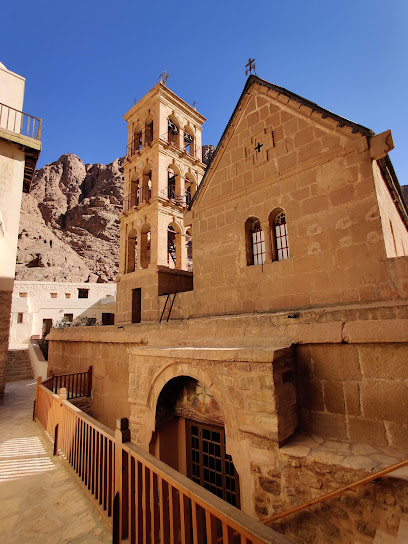
Ras Mohamed Nature Reserve
Explore vibrant coral reefs, abundant marine life, and stunning desert landscapes at Egypt's Ras Mohamed National Park, a Red Sea jewel.
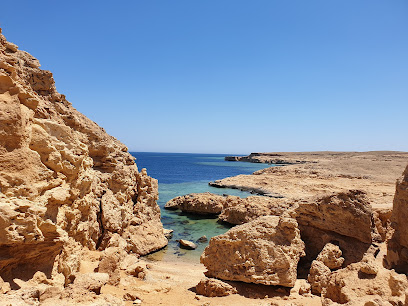
Nuweiba Port
Experience the crossroads of Egypt and Jordan at Nuweiba Port, a key Red Sea gateway for trade, travel, and Sinai adventures.
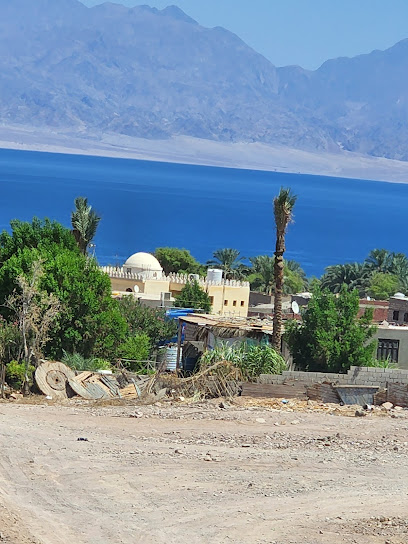
Peace Square
Discover Peace Square in Sharm El Sheikh: a vibrant hub with stunning art, cultural events, and a serene atmosphere for tourists and locals.
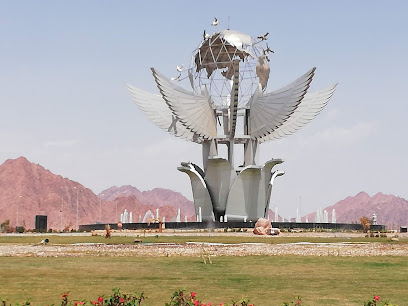
Nuweiba Club Resort
Experience beachfront bliss at Nuweiba Club Resort, offering relaxation, activities, and stunning Red Sea views for an unforgettable Sinai escape.

Laguna Beach Dahab
Discover Dahab's Laguna Beach: Tranquil waters, golden sands, and vibrant marine life await in this Red Sea paradise.
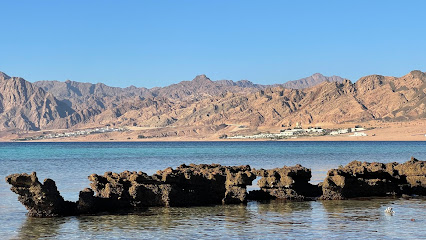
Coral Resort Nuweiba
Experience Red Sea tranquility at Coral Resort Nuweiba: gardens, private beach, and activities await!

Castle Zaman slow-food restaurant
Experience medieval charm in the Sinai desert with slow-cooked Egyptian cuisine and breathtaking views at Castle Zaman.
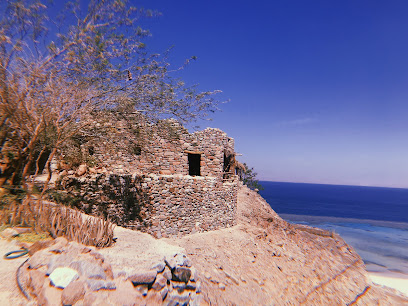
TIME CORAL NUWEIBA RESORT
Escape to TIME Coral Nuweiba Resort: Red Sea views, private beach, lush gardens, and endless activities await in the heart of Nuweiba.
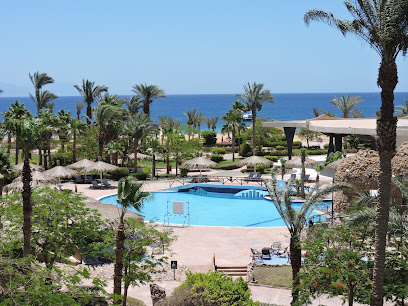
Wadi El Weshwash - وادي الوشواش
Discover Wadi El Weshwash: A hidden Sinai oasis with crystal-clear pools, stunning rock formations, and a thrilling desert adventure.
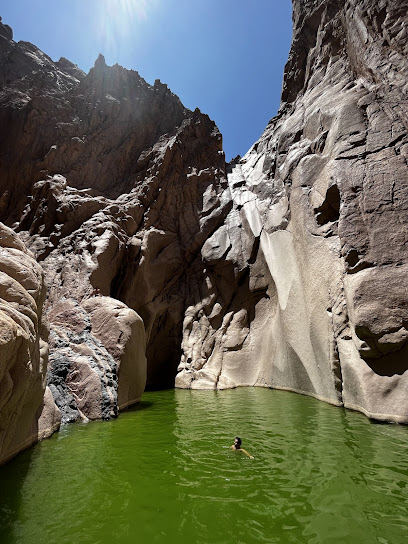
Nakhil inn Hotel Nuweiba
Experience tranquility at Nakhil Inn Nuweiba: beachfront bliss, comfortable stays, and Red Sea adventures await in the heart of Tarabin Bay.
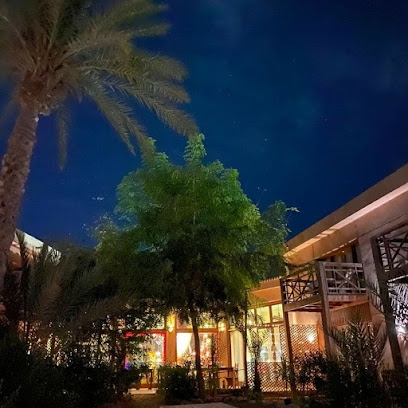
Sayadeen Village - Nuweiba, South Sinai
Escape to a tranquil beachfront oasis in Nuweiba, offering relaxation, water activities, and cultural exploration on the Red Sea Riviera.

Meditation Village
Find inner peace and natural beauty at this tranquil Sinai retreat. Meditation, yoga, and Red Sea serenity await in Ras Shitan.
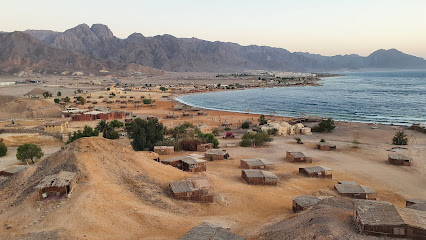
The Small Dune
Experience comfort and convenience at The Small Dune, your gateway to Dahab's Red Sea adventures and Sinai's desert charm.
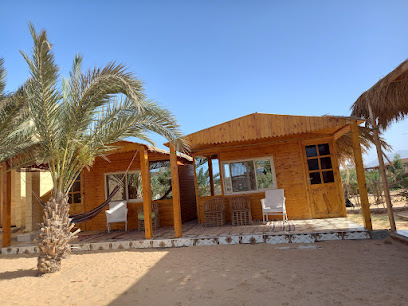
Bedouin star Camp Ras shitan Nuweiba Egypt
Experience tranquility at Bedouin Star Camp in Ras Shitan: Red Sea views, diving, desert adventures, and Bedouin hospitality await.
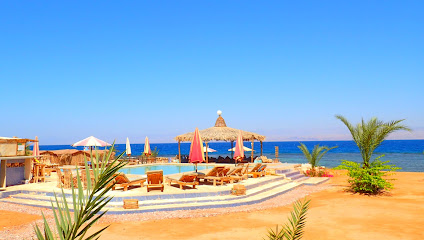
Unmissable attractions to see
Mabroka Beach Camp
Experience the tranquility of Mabroka Beach Camp, a serene refuge on the stunning South Sinai coast, where nature and comfort meet.
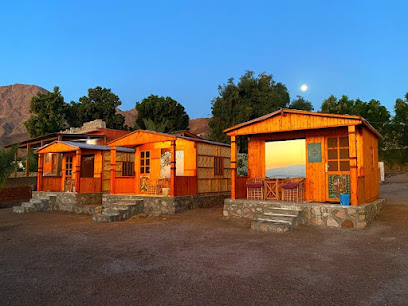
Nuweiba Corniche
Experience the breathtaking beauty and local charm of Nuweiba Corniche, a serene park along the stunning Red Sea coast in South Sinai, Egypt.
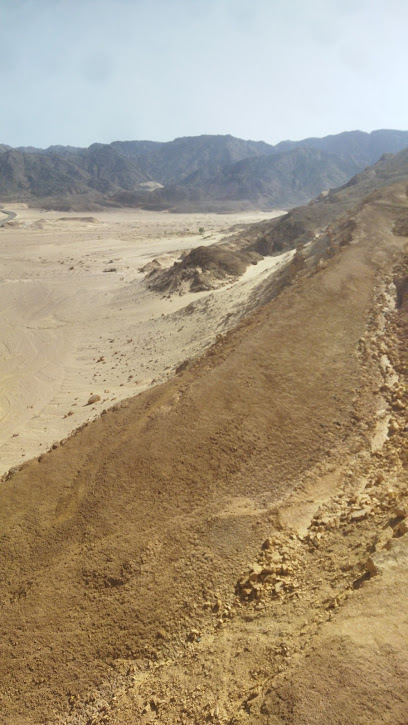
Tarabin Beach شاطئ الترابين
Discover the unspoiled beauty of Tarabin Beach in South Sinai, a perfect haven for relaxation and adventure amidst stunning landscapes.
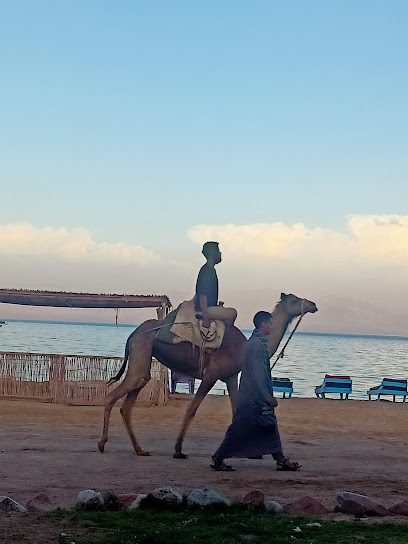
Sinai Mountain Beach
Discover the serene beauty of Sinai Mountain Beach, where stunning landscapes meet the tranquil waters of the Red Sea in Nuweiba, Egypt.
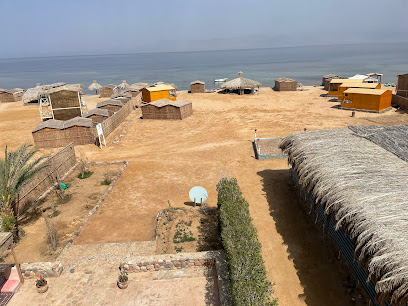
المعجنة al maagana sea view
Discover the natural beauty and tranquility of Al Maagana Sea View, a pristine nature preserve along the stunning coastline of Nuweiba in South Sinai.
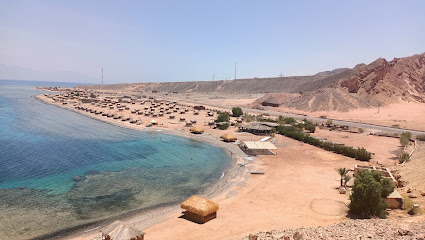
كورنيش نويبع
Discover the breathtaking beauty of كورنيش نويبع, a serene coastal park in Dahab perfect for relaxation, exploration, and adventure.

نويبع اتربين f70
Explore the breathtaking beauty and cultural richness of Nuweiba Atrabin F70, a hidden gem in South Sinai perfect for adventure and relaxation.
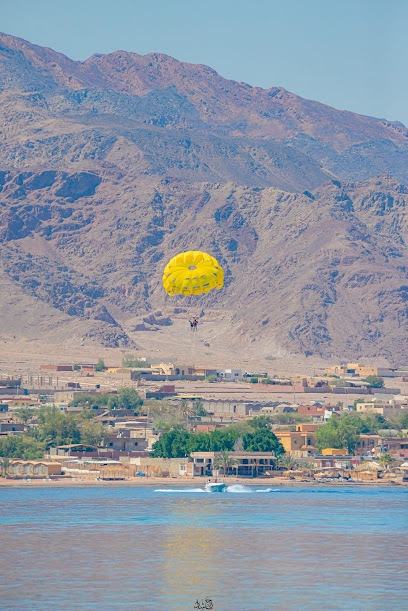
عين الوشواشي
Explore the serene beauty of Ain El-Washwashi in Taba, a hidden gem perfect for relaxation and adventure amidst stunning landscapes.
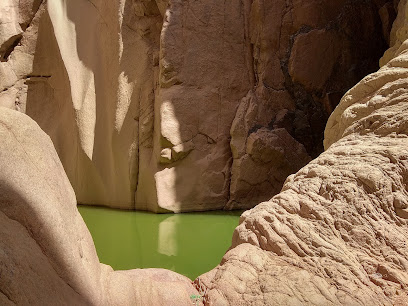
Abo ElSeoud Xperience
Discover the thrill of hiking and rock climbing at Abo ElSeoud Xperience in Nuweiba, where adventure meets breathtaking natural beauty.
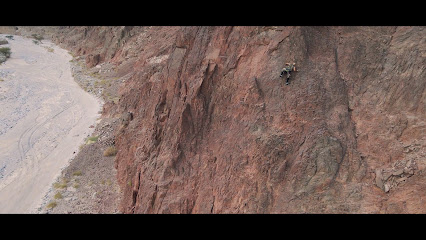
Sim sim camp
Immerse yourself in the breathtaking beauty and tranquility of Sim Sim Camp in South Sinai, where adventure and serenity meet.
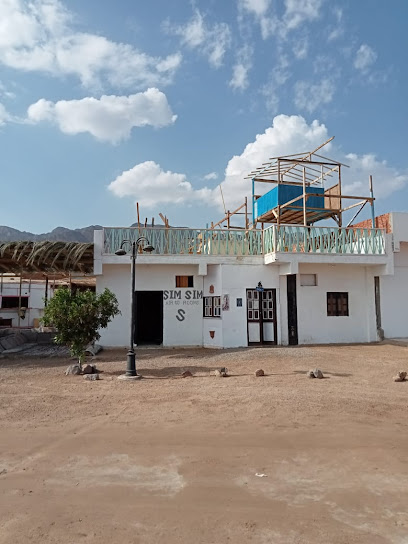
Coral Resort Nuweiba House Reef Diving Site
Discover the vibrant marine life and stunning coral reefs of Coral Resort Nuweiba, a top diving destination in South Sinai, Egypt.
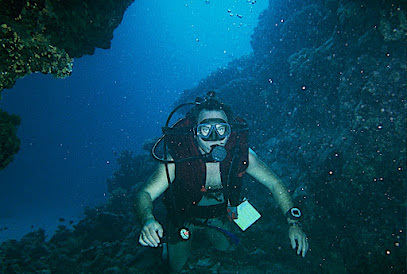
Cathrena Camp
Explore Cathrena Camp in Nuweiba for a perfect blend of family fun, adventure, and the breathtaking beauty of the Red Sea.
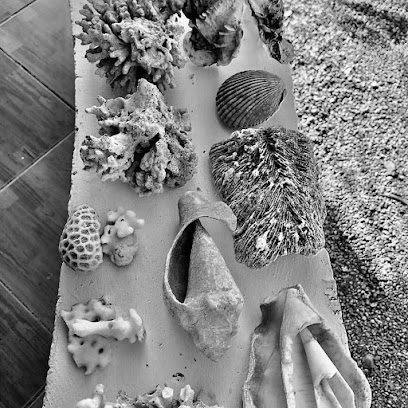
The manifestation tree
Discover the enchanting Manifestation Tree in Nuweiba, a serene natural wonder that promises tranquility and stunning views in South Sinai.

التلال البيضاء
Discover the serene beauty of Al-Tallal Al-Bayda, a hidden gem in South Sinai, where stunning white hills meet tranquil landscapes for an unforgettable experience.
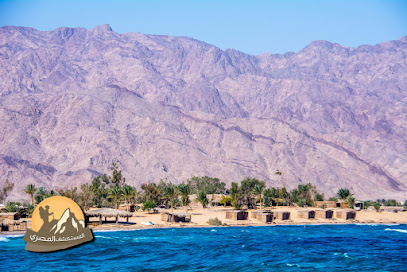
Flamenco camb
Experience the vibrant world of Flamenco in Nuweiba, where passion meets culture in breathtaking performances.

Essential places to dine
New Moon Island Beach Camp & Restaurant
Experience tranquility at New Moon Island Beach Camp & Restaurant - where nature meets culinary delight in Nuweiba's stunning landscapes.
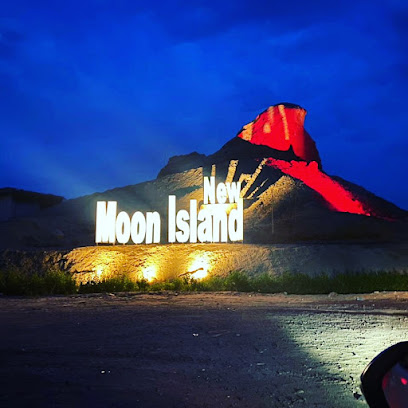
Castle Zaman slow-food restaurant
Discover the essence of slow food at Castle Zaman – where authentic flavors meet stunning views in Taba, South Sinai.
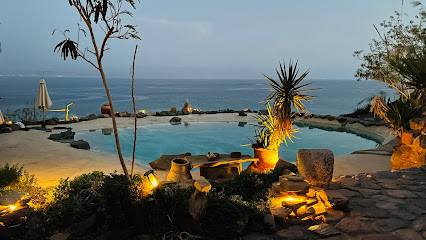
Cleopatra Restaurant - Nweibaa
Experience authentic Egyptian seafood at Cleopatra Restaurant in Nweibaa, where flavor meets affordability by the stunning Red Sea.
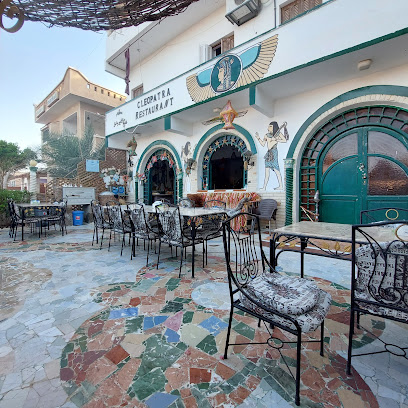
Restaurant Dr. Shesh Kabab
Experience authentic Egyptian barbecue at Restaurant Dr. Shesh Kabab in South Sinai – a true culinary delight for every tourist!
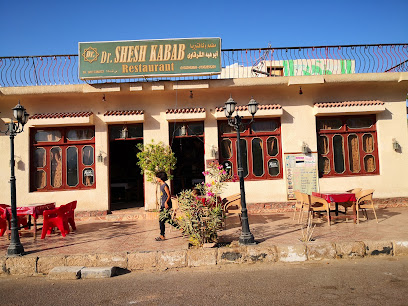
Adam camp
Discover culinary delights at Adam Camp in Nuweiba's breathtaking South Sinai region with exquisite dishes and stunning sea views.
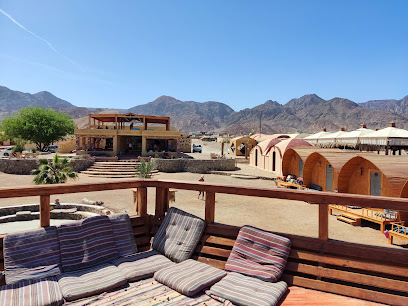
Korean Dragon Restaurant
Experience the essence of Korean cuisine at Korean Dragon Restaurant in Taba – where authentic flavors meet warm hospitality.
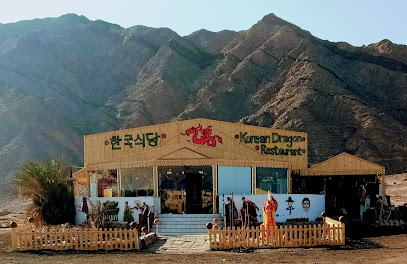
El sharkawy Restaurant
Discover authentic Egyptian barbecue at El Sharkawy Restaurant in South Sinai - where flavor meets tradition!
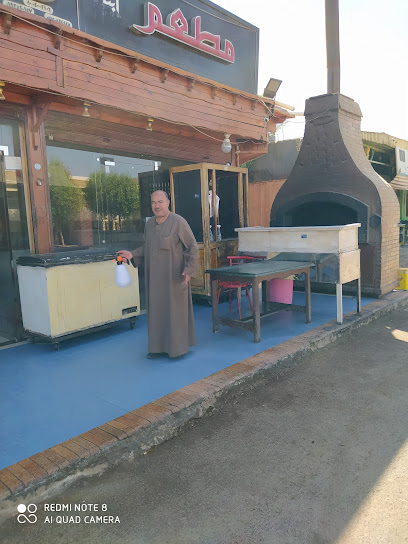
Cinderella Camp Nuweiba
Experience tranquility and adventure at Cinderella Camp Nuweiba - your perfect escape along Egypt's stunning Red Sea coast.
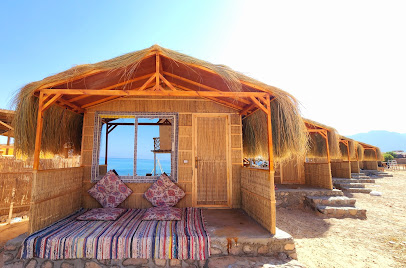
Han Kang Chinese Korean Restaurant
Discover the exquisite flavors of Asia at Han Kang Chinese Korean Restaurant in South Sinai - where culinary tradition meets modern dining.
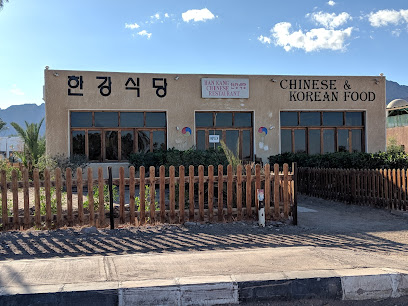
Happy Camp Sinai
Experience culinary delights at Happy Camp Sinai while soaking up breathtaking views along Nuweiba's stunning coastline.
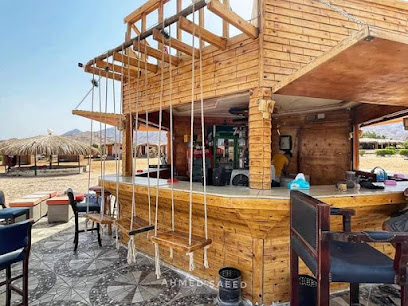
Michael 's Camp
Experience relaxation and adventure at Michael's Camp on Tarabeen Beach - where nature meets comfort in South Sinai.
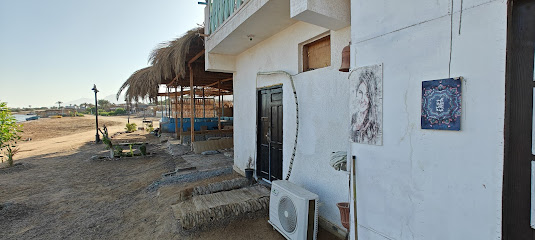
Chopsticks
Experience authentic Chinese flavors at Chopsticks in Nuweiba, where culinary delights meet stunning coastal views.
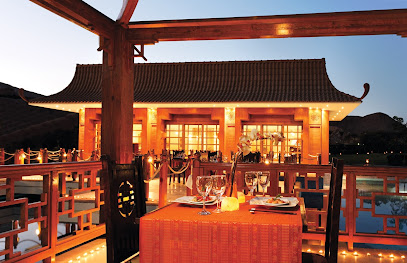
Aquarium camp
Experience exquisite seafood dining at Aquarium Camp with stunning Red Sea views in Taba's beautiful coastal setting.
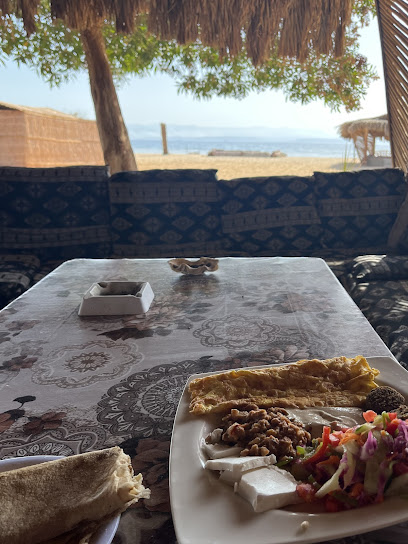
Café Little Prince
Experience culinary excellence at Café Little Prince in South Sinai – where flavor meets charm in every dish.
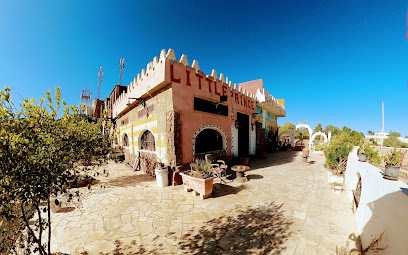
El Mar
Experience exquisite dining at El Mar in Nuweiba, where fresh seafood meets stunning views of the Red Sea.
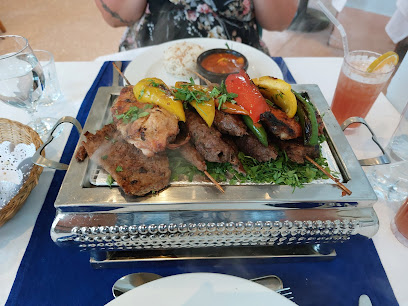
Markets, malls and hidden boutiques
Ciao Mart
Discover the best travel essentials and local snacks at Ciao Mart, your go-to convenience store in Nuweiba, South Sinai.
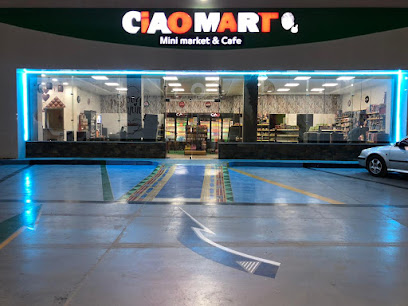
العطار لخدمات المحمول
Explore cutting-edge electronics and mobile solutions at العطار لخدمات المحمول in Nuweiba, your go-to tech hub in South Sinai.
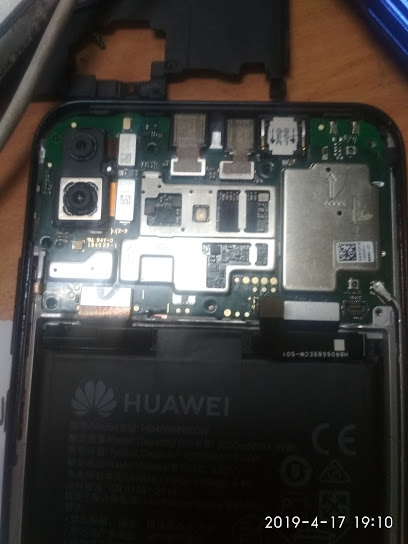
Mini HyperMarket / ميني هايبر ماركت
Discover local flavors and essentials at the Mini HyperMarket in Nuweiba, a vibrant grocery store experience in South Sinai.
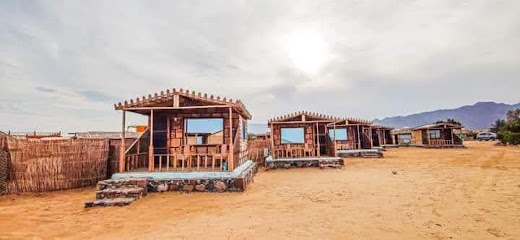
Super market khier baladna
Discover fresh local produce and friendly service at Super Market Khier Baladna in Nuweiba, the heart of South Sinai's grocery shopping.
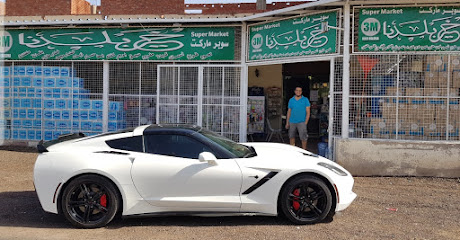
Beer shop
Experience the local beer culture in Nuweiba at this inviting shop, offering a delightful selection of brews to suit every taste.

Gannt sinai مكتبة جنة سينا
Discover Gannt Sinai in Nuweiba: a unique electronics store, library, and souvenir shop blending technology with local culture.
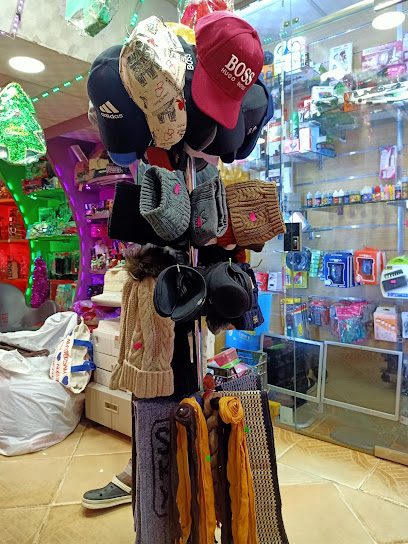
شارع البستان ( السوق التجارى القديم )
Discover the vibrant atmosphere of شارع البستان, Nuweiba's Old Commercial Market, where local culture and unique shopping experiences await.

Local supermarket
Experience the vibrant local culture at a grocery store in South Sinai, where authentic foods and local life come together.

StyleWearnuweiba
Discover trendy clothing at StyleWearnuweiba in Nuweiba's market, where fashion meets local culture in South Sinai.
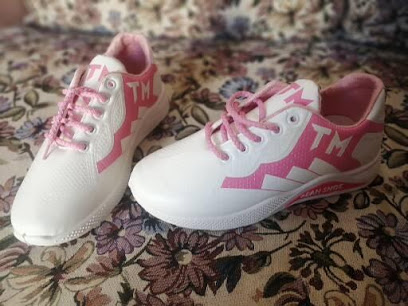
Egypt Duty Free Shops
Discover unbeatable deals and luxury items at Egypt Duty Free Shops in Nuweiba, the ultimate shopping destination in South Sinai.

ستايل وير نويبع
Explore the vibrant clothing styles of Nuweiba at ستايل وير نويبع, where fashion meets local culture in South Sinai.

معرض ندا للأجهزة الكهربائية والتكييف و الأدوات المنزلية
Discover premium air conditioning and home appliances at Nida Electrical Appliances - Nuweiba's go-to store for comfort and quality.
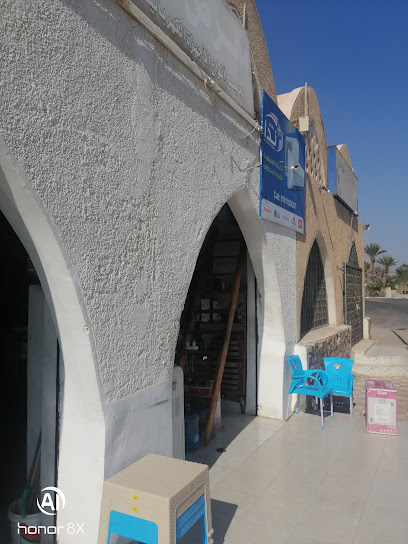
Nuweiba smoking house
Explore the Nuweiba Smoking House: Your gateway to diverse tobacco selections in a culturally rich environment.
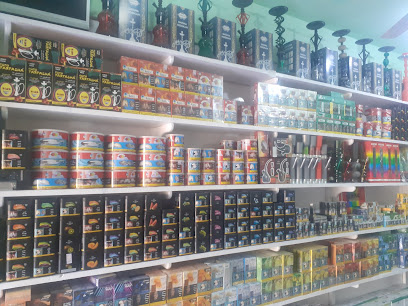
محمد سعيد سلامة نوفل
Discover the authentic tastes of South Sinai at محمد سعيد سلامة نوفل, your local grocery store in Nuweiba offering fresh produce and local delicacies.

محل انتيكا
Explore محل انتيكا, a charming cosmetics store in Nuweiba, where beauty meets culture and local treasures await every visitor.
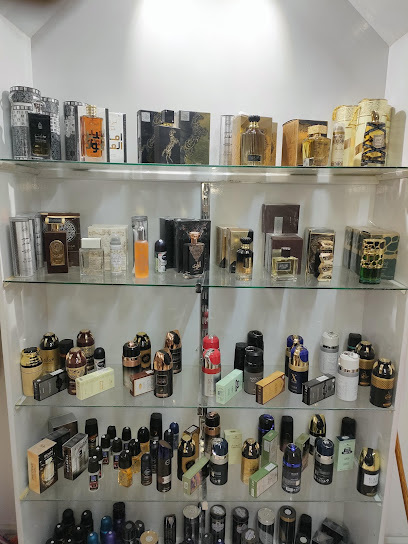
Essential bars & hidden hideouts
Crazy horse camp nuweiba
Discover the lively atmosphere of Crazy Horse Camp in Nuweiba, a unique bar offering drinks, music, and a taste of local culture amidst stunning landscapes.
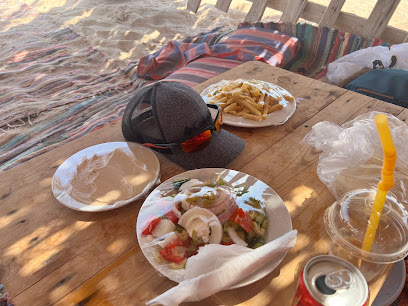
Cleopatra Restaurant - Nweibaa
Experience the best of seafood dining at Cleopatra Restaurant in Nweibaa, where fresh flavors and stunning views create unforgettable meals.
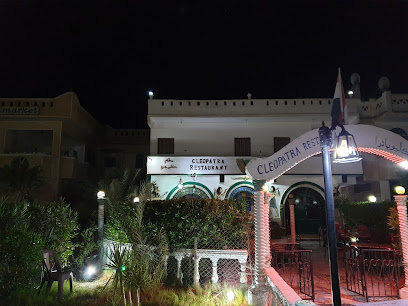
Korean Dragon Restaurant
Indulge in the authentic flavors of Korea at Korean Dragon Restaurant, Taba's premier destination for traditional Asian cuisine.
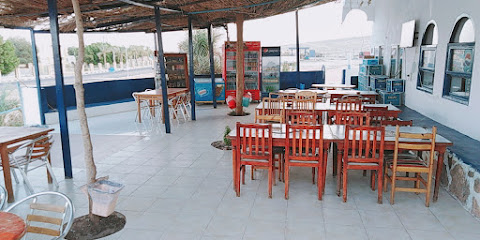
Café Little Prince
Discover the flavors of South Sinai at Café Little Prince, a cozy restaurant with a picturesque setting and a warm ambiance.
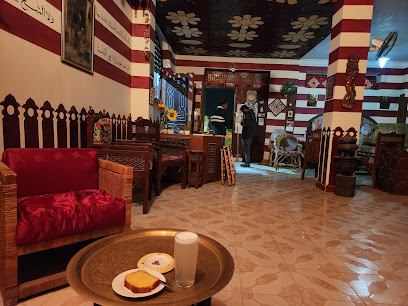
sim sim camp and cafe
Experience the rich flavors and warm hospitality of Nuweiba at Sim Sim Camp and Cafe, a culinary gem in South Sinai.
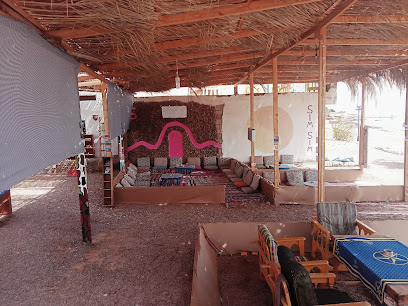
Senara Seafood Restaurant
Discover the exquisite flavors of the sea at Senara Seafood Restaurant, a must-visit dining destination in Nuweiba, Egypt.
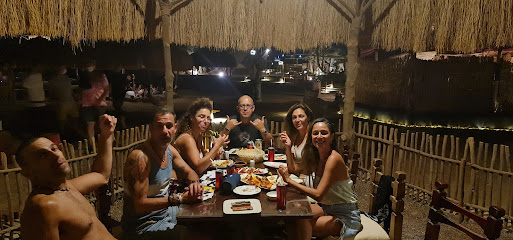
Little Head Bar
Discover the vibrant atmosphere and delectable grill specialties at Little Head Bar in Nuweiba, a perfect spot for relaxation and socializing.
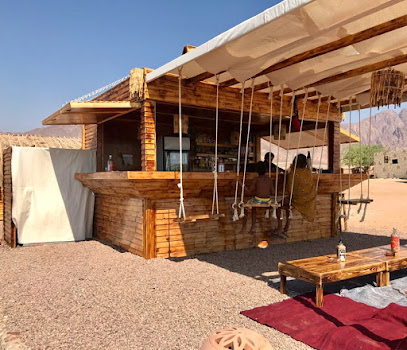
Heineken
Discover the lively Heineken Bar in Nuweiba, where refreshing drinks and a vibrant atmosphere blend seamlessly with stunning South Sinai views.
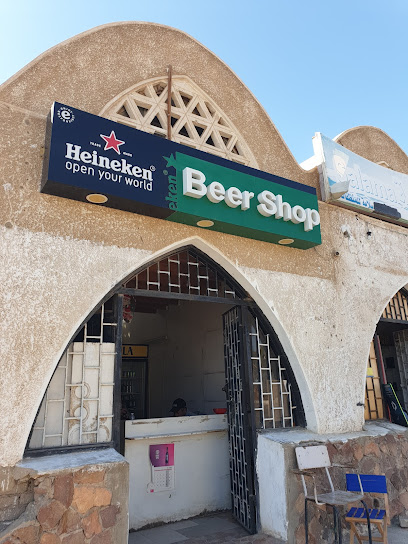
Beach Bar
Discover the Beach Bar in Taba, where tropical drinks and serene beach views create the ultimate relaxation destination in South Sinai.
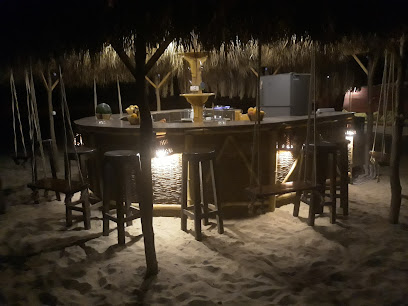
Juices Fresh
Experience the ultimate refreshment at Juices Fresh, Nuweiba's premier cocktail bar, offering vibrant drinks and a lively atmosphere.
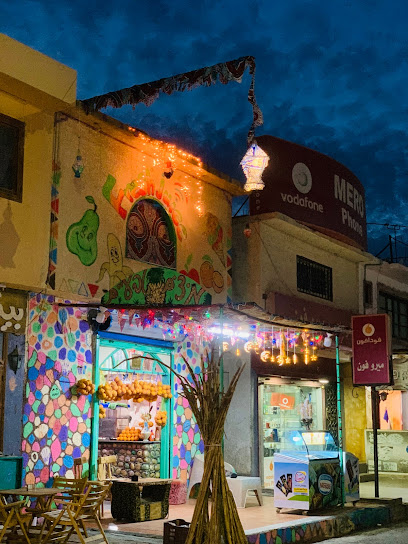
Pool Bar Restaurant
Experience the breathtaking ambiance and delicious local cuisine at Pool Bar Restaurant in the scenic South Sinai region.
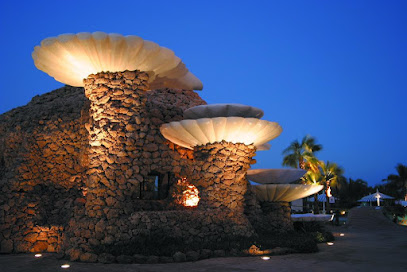
Bis Boat Bar & Lounge
Discover the vibrant nightlife at Bis Boat Bar & Lounge, a perfect blend of relaxation, stunning views, and refreshing drinks in Nuweiba.
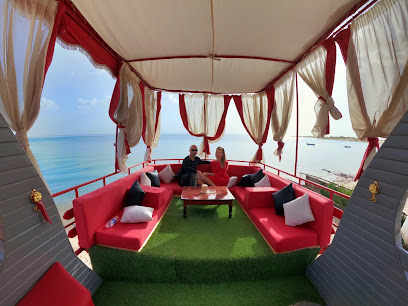
Medina Restaurant
Savor authentic Egyptian cuisine at Medina Restaurant in Nuweiba, where traditional flavors meet stunning views of the Sinai landscape.
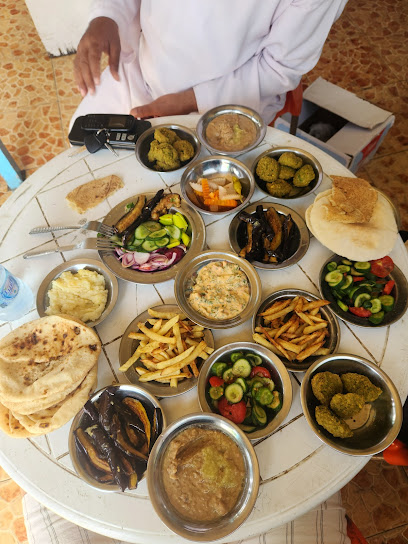
sinai's best camp & restaurant
Discover the authentic flavors of Sinai at Sinai's Best Camp & Restaurant, a unique coffee shop surrounded by breathtaking desert landscapes.

Local Phrases about Nuweiba
-
- Helloمرحبا
[marhaba] - Goodbyeوداعا
[wada'an] - Yesنعم
[na'am] - Noلا
[laa] - Please/You're welcomeمن فضلك
[min fadlak] - Thank youشكرا
[shukran] - Excuse me/Sorryعذرا
[aadhara] - How are you?كيف حالك؟
[kayf halak?] - Fine. And you?بخير. وأنت؟
[bukhayr. wa'ant?] - Do you speak English?هل تتكلم الإنجليزية؟
[hal tatakallam al'inglizia?] - I don't understandأنا لا أفهم
[ana la afham]
- Helloمرحبا
-
- I'd like to see the menu, pleaseأريد أن أرى القائمة، من فضلك
[urid an ara alqaima, min fadlak] - I don't eat meatأنا لا آكل اللحم
[ana la akul allahm] - Cheers!في صحتك
[fi sahtak] - I would like to pay, pleaseأود أن أدفع، من فضلك
[awad an adfa', min fadlak]
- I'd like to see the menu, pleaseأريد أن أرى القائمة، من فضلك
-
- Help!النجدة!
[alnajdah!] - Go away!اتركني!
[itrkni!] - Call the Police!اتصل بالشرطة!
[itassil bialshurta!] - Call a doctor!اتصل بالطبيب!
[itassil bialtabyb!] - I'm lostأنا ضائع
[ana dayi'] - I'm illأنا مريض
[ana mareed]
- Help!النجدة!
-
- I'd like to buy...أريد أن أشتري...
[urid an ashtari...] - I'm just lookingأنا فقط أتفرج
[ana faqat atfarij] - How much is it?بكم هذا؟
[bikam hatha?] - That's too expensiveهذا غالي جدا
[hatha ghali jiddan] - Can you lower the price?هل يمكنك خفض السعر؟
[hal yumkinuk khafd als'ar?]
- I'd like to buy...أريد أن أشتري...
-
- What time is it?كم الوقت؟
[kam alwakt?] - It's one o'clockالساعة الواحدة
[alsaa'ah alwahida] - Half past (10)النصف بعد (10)
[alnisf ba'd (10)] - Morningالصباح
[assabah] - Afternoonالمساء
[almasa'] - Eveningالمساء
[almasa'] - Yesterdayأمس
[ams] - Todayاليوم
[alyawm] - Tomorrowغدا
[ghadan] - 1واحد
[wahid] - 2اثنان
[ithnan] - 3ثلاثة
[thalatha] - 4أربعة
[arba'a] - 5خمسة
[khamsa] - 6ستة
[sitta] - 7سبعة
[sab'a] - 8ثمانية
[thamania] - 9تسعة
[tasia] - 10عشرة
[ashara]
- What time is it?كم الوقت؟
-
- Where's a/the...?أين هو/هي...؟
[ayn hu/hyi...?] - What's the address?ما هو العنوان؟
[ma hu al'anaan?] - Can you show me (on the map)?هل يمكنك أن تريني (على الخريطة)؟
[hal yumkinuk an tarini (ala alkharytah)?] - When's the next (bus)?متى يأتي الحافلة التالية؟
[mata ya'ti alhafilat altaliat?] - A ticket (to ....)تذكرة (إلى ....)
[tazkirat (ila ....)]
- Where's a/the...?أين هو/هي...؟
History of Nuweiba
-
Nuweiba, located on the eastern coast of the Sinai Peninsula, has a rich history as a vital waypoint on ancient trade routes. The area served as a critical stop for caravans traveling between the Levant and Egypt, facilitating the exchange of goods, culture, and ideas.
-
Nuweiba is often associated with biblical narratives, particularly the Exodus story. Some theories suggest that the Israelites crossed the Red Sea at a point near Nuweiba while fleeing from Pharaoh’s army. This connection adds a layer of spiritual significance to the region.
-
During the Ottoman Empire, Nuweiba played a strategic role due to its location along the Red Sea. The Ottomans established several forts in the region to protect trade routes and maintain control over the Sinai Peninsula, evidence of which can still be seen today.
-
The Bedouin tribes have been an integral part of Nuweiba's culture for centuries. These nomadic people have preserved their unique traditions, customs, and way of life, offering visitors a glimpse into a lifestyle that has remained largely unchanged over time.
-
Following the Six-Day War in 1967, Nuweiba came under Israeli control until the Sinai Peninsula was returned to Egypt in 1982 as part of the Camp David Accords. During this period, infrastructure developments were made, including the construction of roads and tourist facilities.
-
In the late 20th century, Nuweiba began to develop as a tourist destination. The pristine beaches, coral reefs, and serene landscapes attracted visitors from around the world, leading to the establishment of resorts, diving centers, and other tourist amenities.
Nuweiba Essentials
-
Nuweiba is located on the eastern coast of the Sinai Peninsula in Egypt. The nearest major airport is Sharm El Sheikh International Airport (SSH), approximately 150 kilometers south of Nuweiba. From the airport, you can take a taxi or a pre-arranged shuttle service to Nuweiba, which typically takes around 2 to 3 hours. Alternatively, you can reach Nuweiba by bus from Cairo, a journey that takes about 6 to 7 hours. There are also ferry services from Aqaba, Jordan, directly to the Nuweiba port.
-
Transportation within Nuweiba is relatively straightforward. Taxis are readily available and can be hired for short trips or for the entire day. Additionally, microbuses (minibuses) are a common mode of transportation and connect various parts of the town. Renting a car is another option, providing flexibility to explore the surrounding areas at your own pace. However, be mindful of local driving habits and road conditions.
-
The official currency in Egypt is the Egyptian Pound (EGP). While credit cards are accepted in larger hotels and some restaurants, it is advisable to carry cash, especially for smaller establishments and markets. ATMs are available in Nuweiba, but ensure you have enough cash on hand as some remote areas may not have ATM facilities.
-
Nuweiba is generally a safe destination for tourists. However, as with any travel destination, taking standard precautions is advisable. Avoid isolated areas after dark and keep an eye on your belongings in crowded places. While Nuweiba does not have specific high-crime areas targeting tourists, staying vigilant and aware of your surroundings is always prudent.
-
In case of emergency, dial 122 for police assistance, 123 for medical emergencies, and 180 for fire services. The local police station and medical facilities are available in Nuweiba. It is recommended to have travel insurance that covers medical emergencies. For minor health issues, there are pharmacies in the town where you can purchase over-the-counter medications.
-
Fashion: Do dress modestly, especially when visiting religious sites. Avoid wearing revealing clothing. Religion: Do respect local customs and traditions. Always remove your shoes before entering mosques. Public Transport: Do be courteous and respectful towards fellow passengers. Don’t eat or drink on public transport. Greetings: Do greet people with a handshake. A friendly 'Salam' (peace) is a common greeting. Eating & Drinking: Do try local delicacies and accept food offerings graciously. Don’t refuse hospitality, as it is considered impolite.
-
To experience Nuweiba like a local, visit the local markets where you can buy fresh produce and traditional Egyptian goods. Engage with locals, as they are often friendly and willing to share stories about the town's history and culture. Don't miss visiting the Colored Canyon and the nearby St. Catherine's Monastery. For a unique experience, consider a Bedouin-guided tour in the surrounding desert areas to learn about traditional Bedouin lifestyle and customs.
Trending Landmarks in Nuweiba
-
Saint Catherine's Monastery
-
Ras Mohamed Nature Reserve
-
Nuweiba Port
-
Peace Square
-
Nuweiba Club Resort
-
Laguna Beach Dahab
-
Coral Resort Nuweiba
-
Castle Zaman slow-food restaurant
-
TIME CORAL NUWEIBA RESORT
-
Wadi El Weshwash - وادي الوشواش
-
Nakhil inn Hotel Nuweiba
-
Sayadeen Village - Nuweiba, South Sinai
-
Meditation Village
-
The Small Dune
-
Bedouin star Camp Ras shitan Nuweiba Egypt
Nearby Cities to Nuweiba
-
Things To Do in Aqaba
-
Things To Do in Eilat
-
Things To Do in Wadi Rum
-
Things To Do in Sharm El Sheikh
-
Things To Do in Petra
-
Things To Do in Ma'an
-
Things To Do in Tabuk
-
Things To Do in El Gouna
-
Things To Do in Hurghada
-
Things To Do in Dana
-
Things To Do in Tafilah
-
Things To Do in Suez
-
Things To Do in Beersheba
-
Things To Do in Kerak
-
Things To Do in Masada







